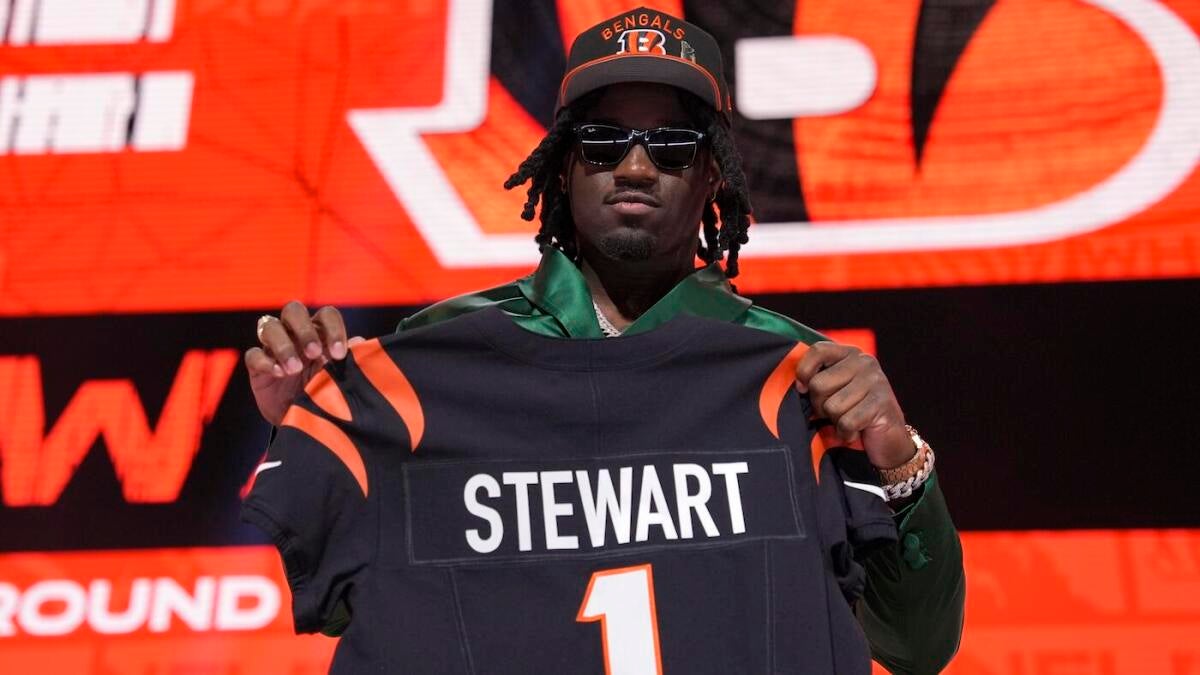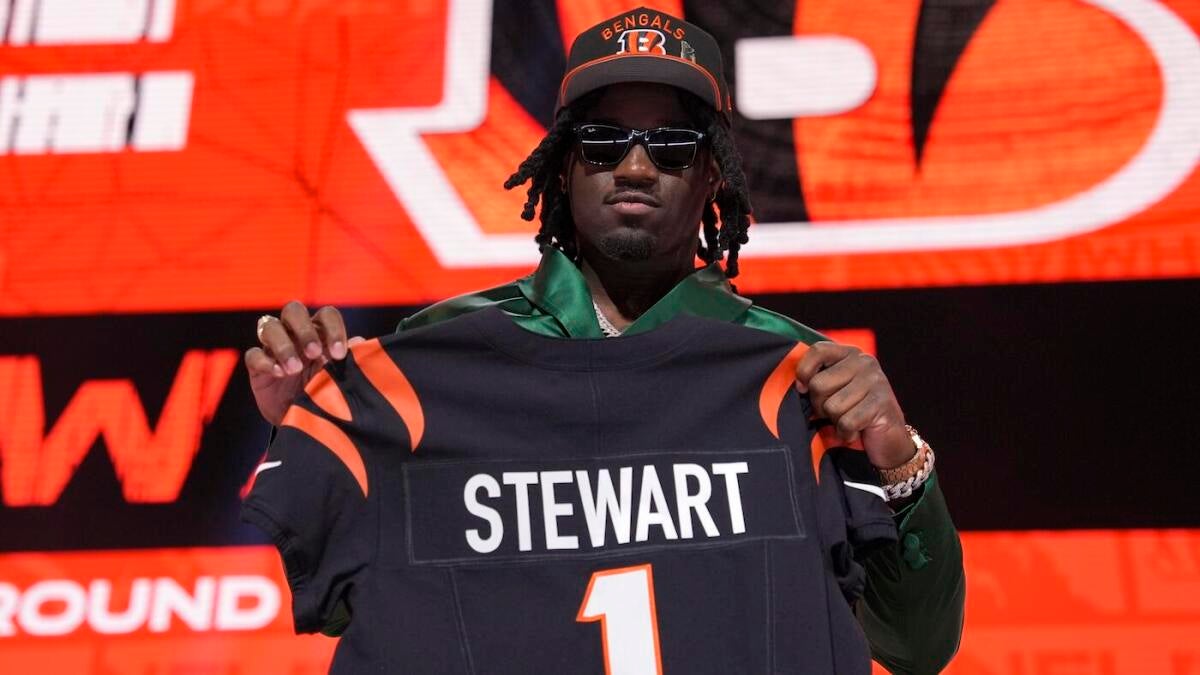The Endgame: Analyzing Shemar Stewart’s Fully Guaranteed Rookie Deal with the Bengals
Introduction: A High-Stakes Negotiation
The NFL offseason is often a whirlwind of trades, free-agent signings, and contract negotiations. However, few stories capture the attention of fans and analysts alike quite like a protracted holdout. The recent standoff between the Cincinnati Bengals and defensive lineman Shemar Stewart ended with a four-year, $18.97 million rookie contract, fully guaranteed. This deal not only resolves a contentious negotiation but also sets a precedent for future rookie contracts in the league. Understanding the nuances of this agreement requires a deep dive into the context, the specifics of the deal, and its broader implications.
The Holdout: More Than Just Money?
Contract disputes in the NFL are rarely as simple as they appear. While the total dollar amount is always a significant factor, the intricacies of contract language often play a crucial role. Stewart’s holdout was reportedly driven by disagreements over the contract’s language, particularly regarding guaranteed money and other clauses. These clauses can include offset language, which determines whether a team is still responsible for paying a guaranteed salary if the player is cut and signs with another team.
The Bengals, known for their conservative approach to contracts, likely faced a dilemma. On one hand, they needed to integrate their first-round pick into the team as quickly as possible. On the other hand, they had to balance their traditional philosophy with the market value of top draft picks. The absence of Stewart during OTAs and the initial part of training camp added pressure on both sides. Public sentiment, often swayed by narratives of “greedy” players versus “thrifty” teams, further complicated the negotiation.
Decoding the Deal: A Fully Guaranteed Gamble?
The headline of a fully guaranteed contract is eye-catching, but what does it mean for both Stewart and the Bengals? For Stewart, it provides financial security and a clear indication of the team’s commitment. It means that, barring unforeseen circumstances, he will receive the full $18.97 million, regardless of performance or injury. This significantly reduces the risk associated with playing a physically demanding sport like football.
For the Bengals, it represents a calculated gamble. Fully guaranteeing a contract of this size signifies a strong belief in Stewart’s potential to contribute significantly to the team’s defense. However, it also means that the Bengals are locked into that financial commitment, even if Stewart doesn’t perform as expected. This can limit their financial flexibility in future years, as they must account for this guaranteed money when making other roster decisions.
The $10.4 million signing bonus further sweetens the deal for Stewart, providing a substantial upfront payment. Signing bonuses are typically prorated over the life of the contract for salary cap purposes, but they still represent a significant financial commitment from the team.
The Bengals’ Perspective: Evolving Contract Strategies?
Historically, the Cincinnati Bengals have been viewed as one of the more fiscally conservative teams in the NFL. They have often shied away from fully guaranteed contracts, prioritizing long-term financial stability. However, the evolving market dynamics, driven by rising player salaries and the increasing leverage of player agents, may be forcing the Bengals to adapt their approach.
The fact that they ultimately agreed to a fully guaranteed deal for Stewart suggests a willingness to be more flexible, particularly when it comes to top draft picks. This could be a sign that the Bengals are recognizing the importance of securing top talent and the need to offer competitive contract terms to attract those players. Last year’s negotiation with Amarius Mims, which also resulted in a fully guaranteed contract, hinted at this potential shift.
It is important to note that while the Stewart deal is fully guaranteed, it is still within the framework of a rookie contract, which is governed by the NFL’s Collective Bargaining Agreement (CBA). The CBA sets parameters for rookie salaries and contract lengths, limiting the scope for negotiation in certain areas.
Implications for the Future: Setting a Precedent?
The Stewart deal could have ripple effects across the league, potentially influencing future rookie contract negotiations. Player agents will undoubtedly point to this agreement as a benchmark when representing their clients, particularly those selected in the first round. If more teams start offering fully guaranteed contracts to their top picks, it could become the new standard, further increasing the financial commitment required to secure elite talent.
However, it’s also important to consider the specific circumstances surrounding the Stewart deal. The Bengals may have been particularly motivated to get him signed quickly to avoid further disruption to their training camp. They may also have been highly confident in his potential, making them more willing to take on the financial risk. Future negotiations will likely depend on a variety of factors, including the player’s draft position, the team’s financial situation, and the overall market conditions.
The On-Field Impact: Can Stewart Deliver?
Ultimately, the success of the Stewart deal will be judged by his performance on the field. The Bengals are investing not only money but also considerable faith in his ability to contribute to their defense. As a highly touted prospect coming out of Texas A&M, Stewart possesses the physical tools and potential to become a dominant force on the defensive line.
He will need to quickly learn the Bengals’ defensive scheme, develop his technique, and prove that he can consistently perform at a high level against NFL competition. The pressure will be on him to justify the team’s investment and show that the holdout was worth it.
Conclusion: A Calculated Risk with High Stakes
The Shemar Stewart saga is a microcosm of the complexities of NFL contract negotiations. It highlights the importance of guaranteed money, the evolving strategies of teams and agents, and the potential impact on the league’s financial landscape. The Bengals have taken a calculated risk by offering a fully guaranteed contract, signaling a possible shift in their approach to player acquisitions. Whether this gamble pays off remains to be seen, but one thing is certain: all eyes will be on Shemar Stewart as he embarks on his NFL journey. His performance will not only determine his own future but also influence the way rookie contracts are negotiated for years to come.












